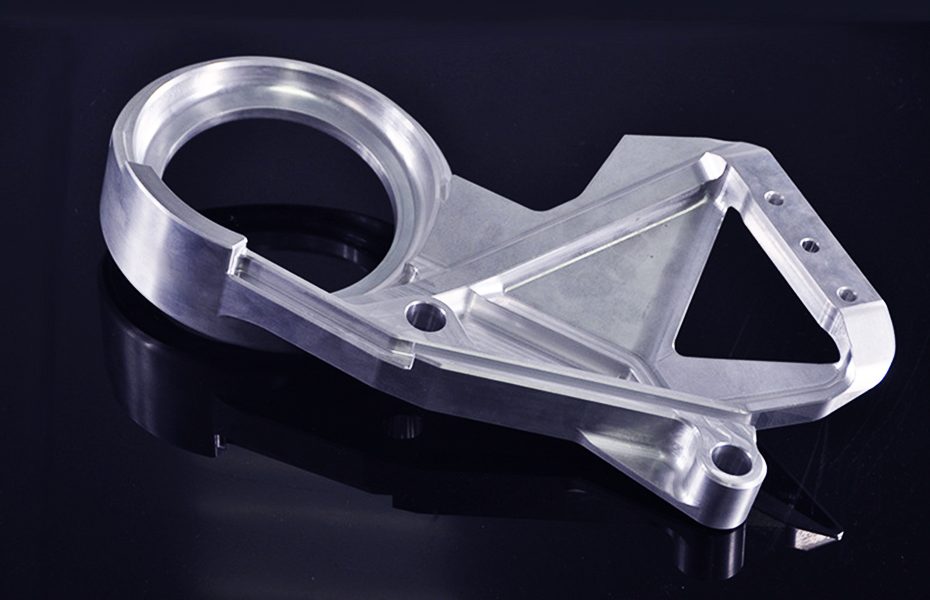CNC machining is well-known for production shops facilitating high volume orders on regular delivery schedules. Custom shops, or job shops, may employ manual machining for prototypes, or small production runs, but the advantages of Machining CNC custom parts are vast. Any non-standard part, or a part with unique features, such as threading, for example, can constitute a custom order.
There are several options for custom runs. Let’s look, first at what defines a small custom run and the various options for production.
Custom Precision CNC Machining
CNC machining is a higher investment, but with added robotics and multi-axis machines, there isn’t much you can’t do for any size project to be competitive in price. Manual programming of G codes can emulate a manual operation quite easily for simple designs. And more complex designs can be modified; an option not available with casting or molding. CNC machining also allows for intricate design features such as overhangs and varied wall thicknesses harder to achieve in other fabrication methods. The strength of the finished product and large size options of workpieces also has advantages over other options.
- Quality: CNC is the clear winner for both tolerances and finish. Injection molding does offer near-perfect quality from one production run to the next and molds can produce millions of forms due to the production process. CNC machining can show slight variations in production based on tool wear from one batch to another, for example, but operates at the highest tolerances. Manual machining offers this same level of quality, but with operator cues harder to predict than computer programming. 3D printing tends to show the layering of material on the finish and certainly is the least strict for tolerances, although, as a newer technology vast improvements are made frequently.
- Speed: Designers will recognize the speed CNC machining offers over 3D printing and sheet metal fabrication, with production runs of a few hundred parts. Once programmed a CNC machine runs autonomously with both precision and speed not available with other processes. For large production runs, the speed of casting can also show cost benefits.
- Cost: Material and quality dictate the cost in any of the manufacturing methods we have reviewed. When comparing the same material and quality needs, CNC machining offers a more economical design for lower quantity production runs. Keep in mind that speed can be increased when tolerances are lower, so even compared to 3D printing or sheet metal work, for example, CNC machined parts can still be produced more efficiently. When compared, there is a point where order volume will show cost advantages for molding. This can vary between 1 or 1,000,000 pieces depending on other factors of the design. CNC machining seems to be favoured for producing tens and hundreds of parts for the best cost.
Injection Molding
Injection molding offers a manufacturing solution for materials that can be melted and molded to the desired shape. Once the mold is designed and tested, production is fast and efficient. Injection molding can offer square holes and deep cuts. Molding also accepts rubbers and other flexible materials that don’t work with CNC machining.
Sheet Metal Fabrication
Sheet metal work is often compared to CNC machining. Sheet metal provides a better option to build an enclosure with thin metal walls, brackets, and chassis from a cost perspective. As the name implies, sheet metal work is only made from flat sheets bent and shaped into position. A CNC machine shop can use sheets as well as solid round bars and tubes. Sheet metal can not offer the tolerances of CNC machining or the strength of material in the final product.
3D Printing
One marked advantage of 3D printing is less material waste. Since the product is built through a layered print process, no excess material is cut away. Materials are limited, however, and large volume production does not find benefit in 3D printing because each piece is built layer by layer. One of the main advantages of 3D printing is a more economical approach for complex geometrics in part design. This is a great option for prototypes and lower quantity production in only single and double digits.
Our Custom CNC Part Offerings
Our CNC machining centers are ideal for working with steel, aluminum, brass, carbon steel, and other specialty materials. We can provide a number of custom finishing services, such as full anodizing, carbon blacking, hard coating for aluminum custom machined parts, and electrogalvanizing for steels and ferric materials.
Our team also offers a variety of other machining services, In addition to providing conventional milling, drilling, turning, and sawing, we are well-equipped for the specialty grinding and part-marking processes required by many modern applications. And, if needed, our certified partners can provide heat treating, welding, plating, and painting services before final inspection, assembly, and packaging.
